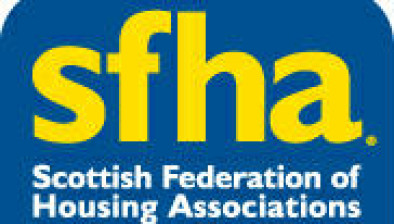SFHA celebrates 40 years as national body for Scottish housing associations and co-operatives

To mark its 40th anniversary year, the Scottish Federation of Housing Associations (SFHA) is kicking off the celebrations at its annual conference.
As well as looking to the future, the Federation is also reflecting on lessons from the past.
Mary Taylor, SFHA chief executive, said: “The SFHA, and the housing associations and co-operatives across Scotland, has had a very eventful 40 years, mostly supported by governments and political parties across the spectrum. There have been incredibly challenging events such as the Right to Buy and, more recently, welfare reform – but the Federation and the sector have remained resilient.
“Our members have a vital role to play in housing and providing services to some of the country’s most vulnerable people, and the SFHA will continue to support our members through this next period of change.
“Although there are more challenges ahead with the roll-out of Universal Credit, further devolution will also bring new opportunities for social landlords, and we look forward to representing their interests to both governments and aiming to ensure the best possible outcome for our members and their tenants in the years to come.”
The SFHA originally started as ‘the Scottish Committee’, a sub-committee of the National Housing Federation, and in November 1975, it became a separate organisation. Since 1975, the Federation has been the national representative body for housing associations and co-operatives in Scotland, providing policy advice and lobbying governments in order to try and bring about positive change for its members and their tenants.
Throughout the past 40 years, the SFHA has supported its members through many changes.
The late ‘70s and early ‘80s saw events which would bring lasting change to the sector and still affect it today. After the Conservatives won the 1979 General Election, they launched the Right to Buy policy in 1980 and, although the Federation assiduously lobbied against it from the start, the policy remained in place until Scottish Government announced its demise in July 2013.
The General Election in 1997 returned New Labour to power, and the government announced plans to hold a referendum on devolution to Scotland. Housing was considered one of the five pillars of devolution, and the SFHA threw itself behind the case for the Parliament, believing it would give Scottish housing a higher political profile and allow greater access to the parliamentary processes. On 11 September 1997, the Scottish electorate voted for devolution of powers to Scotland, and on 12 May 1999, the first meeting of the new Scottish Parliament took place.
The new millennium saw political pressure for cuts, efficiencies, mergers and sharing of services. Stock transfers from councils to housing associations took place in Glasgow, Scottish Borders and Dumfries and Galloway in 2003.
In 2008, the UK entered recession and Scottish Government capital investment was cut by 29% between 2008/09 and 2011/12. While the private market struggled, housing associations and co-operatives propped up the rate of house building and created constructions jobs.
After the 2010 General Election, the Conservative and Liberal Democrat coalition focused on deficit reduction and cut capital investment. After the government announced plans to address Housing Benefit spending, the SFHA launched a campaign against the proposals.
In 2011, the UK government introduced the Welfare Reform Bill which proposed several changes, including a simplified system of benefits – welcomed in principle by SFHA. SFHA heavily criticised many of the proposals, including the removal of Housing Benefit payment to landlords and a proposed penalty to people deemed to be ‘under occupying’. Following extensive lobbying by SFHA and others, the House of Lords voted against the penalty, but it was overruled by the House of Commons, and the ‘bedroom tax’ was introduced in April 2013.
SFHA launched its ‘Keeping Our Homes Affordable’ campaign in 2013 and called on the Scottish Government to return subsidy to sustainable levels, taking the case to party conferences and through participation on the Short Life Working Group on Affordability, Financial Capacity and Subsidy Rates. The Scottish Government accepted the group’s recommendations, and additional social subsidy of £16,000 per unit was agreed, taking grant levels from an average of £40,000 to £56,000 for housing associations.
After the 2014 Scottish independence referendum, the Prime Minister announced a commission to consider further devolution of powers. SFHA took a significant and active part in lobbying for further powers related to working age benefits (including support for housing costs) and energy matters. After the commission released its report, the SFHA stated that, although the recommendations of the Smith Commission did not go as far as the Federation had called for in its submission; it represented some progress on housing, energy and the SFHA’s concerns about the impact of Universal Credit on tenants and social landlords. SFHA was subsequently asked to join the Scotland Office Stakeholder Group to support the preparation of draft legislation following the publication of the Smith Commission’s report.
In January 2015, with Universal Credit implementation due to start weeks later, the SFHA led a call across civic Scotland for roll-out to be suspended pending clarity around further powers after the General Election. After the UK government revealed its Command Paper, Scotland in the United Kingdom: An Enduring Settlement, on additional powers, SFHA repeated its call to halt the roll-out of Universal Credit until further powers were devolved to the Scottish Parliament.
The SFHA is continuing to talk to the Scottish Government, Scotland Office and the DWP about the implementation of further powers and will support and represent its members through all of the changes that extra devolution with bring to the social housing sector.









